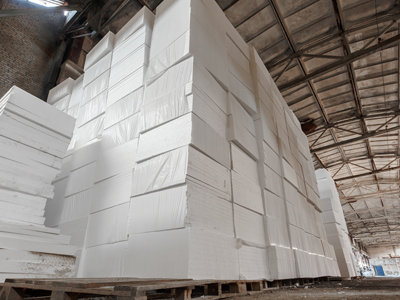Polystyrene

Polystyrene, which can be found in solid or foam forms, is a non-toxic hydrocarbon polymer.
It provides high machinability, electrical insulation, excellent resistance to water, acids, and shocks as well. Not providing a suitable environment for mildew and bacteria development make this material prominent.
Since it is one of the widely consumed plastics, several million tons of polystyrene are produced per year in the world. Although it is naturally colorless and transparent, polystyrene can be produced in various colors using colorants.
Features & Applications
Features
- Low-cost, rigid, easy to mold, good dimensional stability, and transparent.
- Excellent electrical insulation and low dielectric loss.
- Superior gamma radiation resistance.
Applications
- Food packaging, containers, lids, bottles, trays
- Lab equipment
- Insulation
- Disposable Cutlery
- Sporting equipment
- Boat and watercraft components
- Automobile parts
Machining Options
Other Information

Properties of Polystyrene
- Technical Name : Polystyrene (PS)
- Chemical Formula : (C8H8)N
- Melt Temperature : 210-249 °C (410-480 °F)
- Typical Injection Molding Temperature : 38 - 66 °C (100 - 150 °F)
- Heat Deflection Temperature (HDT) : 95 °C (284 °F) at 0.46 MPa (66 PSI)
- Tensile Strength : 53 MPa (7700 PSI)
- Flexural Strength : 83 MPa (12000 PSI)
- Specific Gravity : 1.04
- Shrink Rate : 0.3 - 0.7 % (.003 - .007 in/in)









